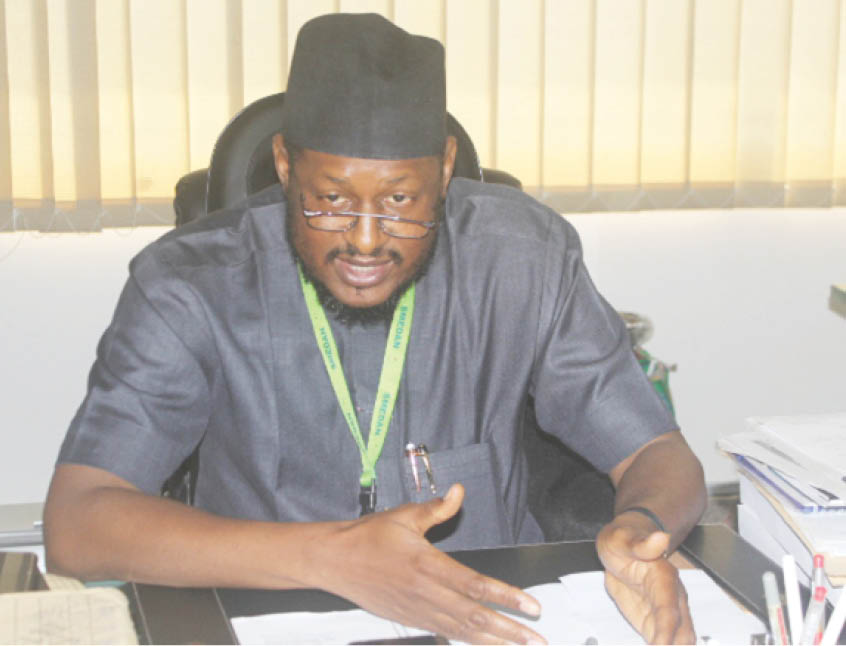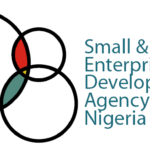Dr Dikko Umaru Radda is the Director-General/Chief Executive Officer of the Small and Medium Enterprises Development Agency of Nigeria (SMEDAN). In this interview, he speaks on the benefits of the mass registration for Micro, Small and Medium Enterprises (MSMEs) across the country amongst other issues.
What do you hope to achieve with the mass registration of Micro, Small and Medium Enterprises (MSMEs) in the country?
The issue of mass registration is the idea that we came up with to help the agency to identify all the MSMEs in the country. To know their location, what they produce, what they sell and so on. We have been conducting MSMEs surveys in conjunction with the National Bureau of Statistics (NBS) every four years, the most recent one was in 2017. That one revealed that we have 41 million MSMEs in the country including the micro, small and medium.
What we want to achieve with the mass registration is to have accurate data of the MSMEs we have in the country. We want to walk away from the survey and get the authentic figure of the MSMEs in the country. Especially, where they are located, their addresses, what they produce and more. If it is skills, what kind of skills they have.
The data will enable us to formulate policies for MSMEs because of the accuracy involved. And then any intervention that is coming from the government can easily be tapped from that. You can easily know the MSMEs you have and easily channel your intervention to them.
Again, it will help us when investors come to the country. If they are looking for a particular product, we know those who are producing them and their location. Investors can use that source to get raw materials, and if it is skills they need, they can know the location of the person. No country can do adequate planning without an authentic database that can be used for the generality of the people and the benefit of the MSMEs in the country
Are you doing this online or taking it from state to state?
We are doing it in different categories. We are doing it online. We have a website where you can register all the information, and after registration of the information, you will have a unique SMEDAN number. It will be unique to each MSME that registers. You can print your certificate of registration with that unique number, and you can keep your certificate if you want to use it for any intervention. We deployed the service of enumerators in some states of the federation, but because of funding, we cannot go to all the states now.
We started last year and we are going on this year. There are enumerators who have forms to help MSMEs who cannot go to our website because they are not literate, they can help them to fill those forms and they can register them online and then get their certificates printed and given to them.
All the registration SMEDAN is doing is free of charge. We are not charging one naira from any of the MSMEs to register. The essence is to allow us to have proper data for policy formulation and proper programme implementation.
How many MSMEs have registered so far?
I have not gotten the accurate figure but the last information I got showed about one million MSMEs have registered so far.
How long is the MSMEs mass registration going to last?
Depending on the availability of the funding we have but the website is on and going through, anytime any moment. We are doing a lot of sensitization and awareness campaigns to enable people to register. We are telling them the benefits they will get in terms of government interventions and more.
Many MSMEs have not been able to get the Agri-Business/Small and Medium Enterprise Investment Scheme (AGMIES) loan, what is SMEDAN doing to help them?
The greatest role we have to play in SMEDAN in the AGMIES loan programme is the entrepreneurship training that we provide and also to help them develop business plans. We are also creating awareness about the loan. But the sole responsibility of sending the applications, calling for interview and subsequent provision of the loan to the beneficiaries is the role of the NIRSAL Microfinance Bank and Central Bank of Nigeria (CBN).
You presented the revised National Policy on MSMEs to the Minister of Industries, Trade and Investment recently, what next?
Because we have been working for the past two years to produce this revised policy, and it stipulated that we revise it every four years so we can have proper implementation, the major areas and highlights of the revised version of the MSMEs policy is in the area of classification of the MSMEs and in the area of marketing, business development service, skills and capacity building aspect. In this policy, we came up with the implementation plans that will enable the various agencies and departments as well as the private sector to implement the content of the policy. If you produce a policy and it’s not implemented it is like the policy is not created.
We are at the last stage, the final document was presented to the ministers of State for Industries, Trade and Investment, they were satisfied and they gave us some of their observations, which we are putting into the policy and the final draft will be sent to the Federal Executive Council for approval. Once it is approved, we will start implementing the policy including the implementation plan, including the framework. We have a time frame for achieving everything.
Also, we came up with a reporting system, the quarterly report will be produced and given to the chairman Technical Committee of the National MSMEs Council, that is the Minister of Industries, Trade and Investment and yearly, we should be giving report to the National Council of MSMEs on the implementation which is been headed by the vice president of the country.
How will MSMEs benefit from this policy?
I think there are a lot of benefits to MSMEs. The responsibility of this agency is to facilitate and stimulate the growth and development of MSMEs in the country. The policy will help the growth of MSMEs in a general term, and the development of the MSMEs from micro, small, medium and to large corporations.
The Federal Government recently launched the survival fund and stimulus fund, what do they entail?
Survival fund is a conditional grant to support vulnerable micro and small enterprises in meeting their payroll obligations and safeguarding jobs in MSMEs from the shock of the COVID-19 pandemic. The scheme is estimated to save at least not less than 1.3 million jobs across the country while targeting an average of 35,000 individuals per state.
The Guaranteed Off-take Scheme is being designed to assist MSMEs impacted by COVID-19 through guaranteed off-take of products.
The scheme would start with the payroll support targeting 100,000 businesses and 500,000 beneficiaries for salaries ranging from N30,000 to N50,000. We will unfold more as we go on.
What are you doing to ensure that more cooperatives benefit from the One Local Government, One Product (OLOP) fund?
The programme is about funding. The available funds we have is for the number of cooperatives that will benefit from it. So, it is all tied to the amount of funds available. So we make sure that every year, we go to the109 senatorial district and we are working towards achieving that in 2020. For those that got it already, the moratorium has been extended by one year because of the COVID-19 pandemic. Those that got it now will start paying from March 2021.

 Join Daily Trust WhatsApp Community For Quick Access To News and Happenings Around You.
Join Daily Trust WhatsApp Community For Quick Access To News and Happenings Around You.


